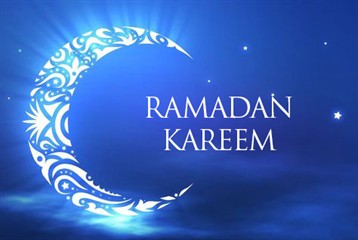Ramadan – The Month of Blessings
Ramadan is a holy month for approximately 1 billion Muslims around the world. It is considered as the month of blessings. The Islamic calendar also known as the Hijri calendar is a lunar calendar. It contains 12 months which are based on the position of the moon. Since the 12 synodic months only total (12 x 29.53=) 354.36 days, the Islamic calendar is shorter than a tropical year, and therefore it varies from the Christian calendar. The calendar is based on the Qur’an, the main religious text of Islam, and its observance is a fundamental duty for Muslims.

Ramadan is a month where Muslims practice daily fasting, which begins at dawn and ends at the beginning of sunset. This month is a Holy month where Muslims practice our faith. Also this month is known as the month where God has sent us the Quran.
During Ramadan we are not only being asked to not eat and drink, we are asked to speak no evil and do no evil. We are asked to think about and give to the poor and to remember how blessed we are with all that we have. We are asked to volunteer in organizations, focus on the spiritual and practice self-control. Mosques from around the world will read the complete Quran during Ramadan. For many people Ramadan marks the beginning of working on becoming a better person and becoming closer to God. It is well known that during Ramadan many people will focus on and improve their physical and mental health.
During Ramadan we have large gatherings of family and friends. We all come together before breaking our fasts. The first meal is called Iftar, breakfast, the first meal we take after the sun has set. The time for “Iftar” changes daily. It is announced by the call for prayer and there is a cannon shot at the same time. These events signal it is time to break the fast. These meals begin mostly with some milk or water and dates and then expand into large main dishes that have been prepared during the day. After Iftar we find all different kinds of desserts. During these gatherings we are sharing our food and our space with people, and we enjoy our time together as family. In the hour before dawn people likely have the “Suhoor” meal. This is a light meal taken before dawn whereby we begin our cycle of fasting again.
Ramadan ends with a holiday called “Eid el Fitr“. If we translate this literally, it is “Festival of breaking the fast”. This holiday celebrates the end of the 29 or 30 days of sunrise-to-sunset fasting during the month of Ramadan. This holiday is one of the two most important holidays in the Islamic calendar. It is celebrated over three days. During Eid el Fitr people decorate their homes with all kinds of decorations, the children are typically given presents and lots of sweets. People dress up and enjoy their time with family and friends.
